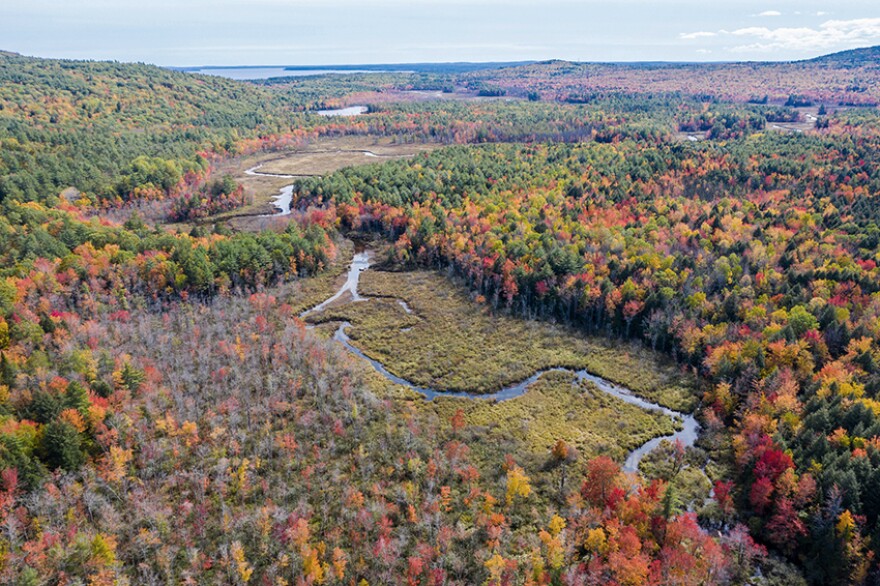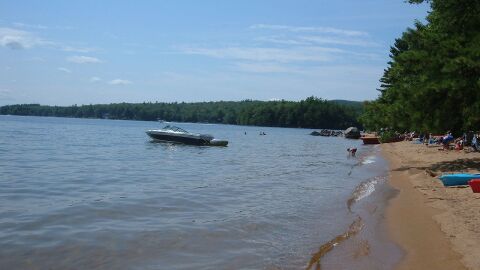Sebago Clean Waters, a coalition of nine Maine conservation organizations, has been awarded $8 million to preserve forestland in the Sebago Lake watershed, the largest source of drinking water in greater Portland.
“The runoff from these forests flows into Sebago Lake, which we're all drinking, and so we will be working with willing landowners who own the land and want it to stay forested forever,” said Paul Hunt, the environmental manager for the Portland Water District.
Working with other conservation partners, the Portland Water District will manage the funds to support land stewardship, aquatic invasive control, stream connectivity and landowner outreach.
“If you live in Maine, either because you never left or because you came here, the forest is one of the things you love about Maine,” said Hunt. “We get to preserve the Maine we love, we get clean drinking water...and on top of all that, we can hike on it. We can remove trees from it in a sustainable way. We have wildlife habitat, it's going to create healthy fisheries, all of these things.”
Hunt said the grant will offer vital help with forest conservation.
“Over the last of the subsequent 20 years, we've conserved 6,000 acres of forest. And this grant will allow us to conserve 10,000 in the next five years.”
Currently, only 11 percent of the forests in the watershed are protected. Hunt said there is still fundraising to be done, but the money will help the coalition protect an area larger than the city land area of the city of South Portland.
He also emphasized the ways in which the work can directly serve Mainers.
"I get a little emotional about it because I realized 50 years from now, 100 years from now, someone is going to go hiking on a trail that is there because of this grant. And they won't even know why this is even here, but it doesn't matter. It's sort of for this generation and future generations, all will benefit from this work."
Sebago Clean Waters was one of ten organizations to receive a Regional Conservation Partnership Program grant from USDA Natural Resources Conservation Service. The funding was a part of the Farm Bill.
Updated 12:33 p.m. Sunday, Sept. 20, 2020/ Originally published 10:51 a.m. Saturday, Sept. 19, 2020



